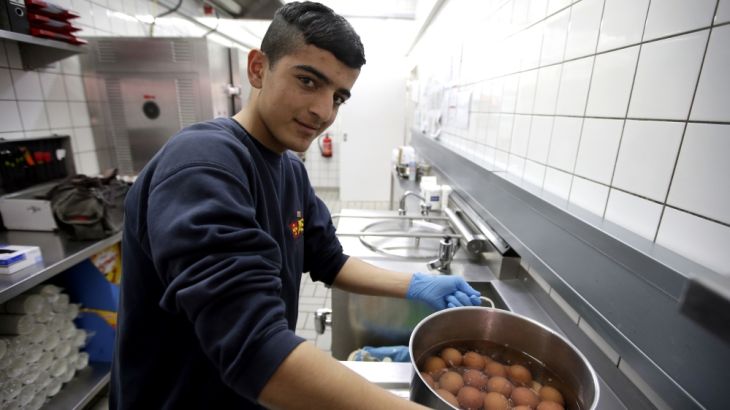
Europe’s refugees – An economic opportunity?
Some Germans fear the new arrivals will take their jobs and push down wages but IMF offers a different perspective.
When Chancellor Angela Merkel opened Germany up to Syrian refugees, it seemed to reflect a belief that it was a moral imperative regardless of the cost.
But cost matters because it shapes the way citizens in Germany, and elsewhere, view the hundreds of thousands of refugees who have now settled across Europe.
Keep reading
list of 4 itemsUS imposes new sanctions on Iran after attack on Israel
A flash flood and a quiet sale highlight India’s Sikkim’s hydro problems
Why is Germany maintaining economic ties with China?
Some Germans fear the new arrivals will take their jobs and push down wages, while others think those refugees are a burden on taxpayers.
The International Monetary Fund, however, thinks they could represent an economic opportunity as it calls on Germany to do more to help the refugees find employment.
Germany has one of the fastest ageing populations in Europe.
Many of those seeking refuge in Europe are aged under 25 and well-educated. About 21 percent of Syrians who have arrived in Germany since 2013 have post-secondary education – close to the German average of 23 percent.
But tough labour laws in the European Union means that it could take a while to integrate them into the economy. And many refugees seeking jobs will need extensive training and more importantly, learn how to speak German.
So, can Europe’s new arrivals help counter the effects of an ageing population?
And what needs to be done to encourage greater job participation?
Presenter: Fauziah Ibrahim
Guests:
Thomas Liebig – Senior migration specialist at the Organisation for Economic Cooperation and Development, OECD
Franziska Hartmann – Project coordinator for Arrivo, an initiative creating the conditions for migrants to stay in Europe and earn a living
Florian Hartleb – Political scientist and lecturer at Eichstatt University